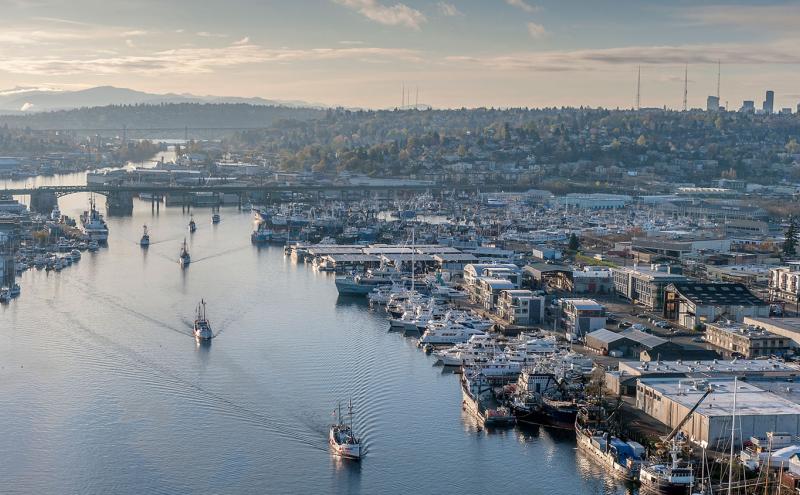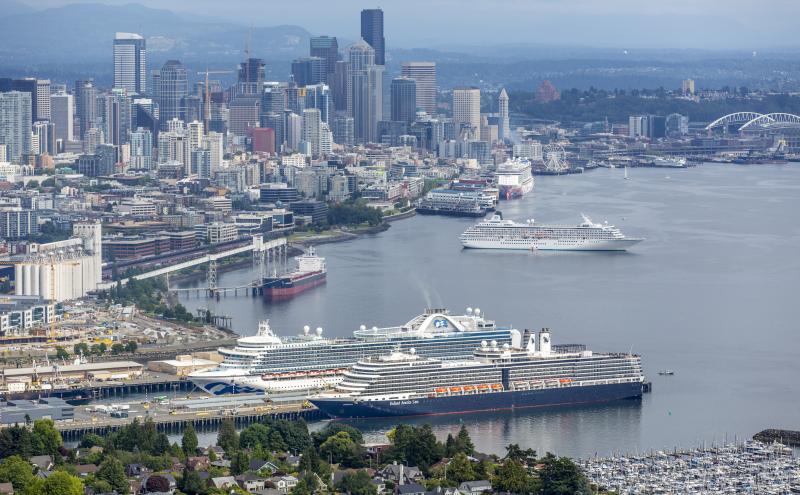
Sustainable marine fuels are the future of maritime transportation, and it's a conversation that demands all hands on deck. Government, ports, industry leaders, innovators, investors, and the community all have a role to play. Without this collective effort, Washington's maritime sector risks falling behind in the global race to decarbonize. But the stakes are far greater than competitiveness — it's about tackling climate change and ensuring environmental justice for our communities.
The Seattle Propeller Club's recent gathering of maritime professionals underscored a key theme — the Pacific Northwest's prime position to become a national leader in driving this crucial work forward. Representatives like Port of Seattle Executive Director Steve Metruck, Eileen Tausch from Crowley Maritime, Joshua Berger of Washington Maritime Blue, and John Waterhouse of Elliott Bay Design Group all emphasized this potential.
"We need to ensure the right fuels are available, at the right price, in the amounts needed and with critical safety and environmental attributes in mind," said Port of Seattle Executive Director Steve Metruck, emphasizing the complexity of the challenge. "It's difficult to overstate the magnitude of this work."
That's why the Port sees itself as a convener and is working with Washington Maritime Blue, The Northwest Seaport Alliance, the Consortium for Hydrogen and Renewably Generated E-Fuels (CHARGE), and others to establish a Sustainable Maritime Fuels Collaborative. This collaborative aims to bring together supply and demand stakeholders to chart an accelerated course for the development and uptake of clean maritime fuels in Washington. With the right players at the table and a clear understanding of the challenges, the potential benefits of sustainable marine fuels are too significant to ignore.
Innovation is in our DNA
The region boasts a unique combination of factors: a culture of innovation, a robust maritime industry, and a commitment to environmental responsibility. But innovation alone isn't enough. The conversation highlighted the need for supportive regulations to incentivize the development and use of clean fuels, alongside rapid technological advancements to ensure their safe and efficient implementation.
There's no single solution, and the decisions we make today will have long-lasting impacts. The panel also reiterated that knowledge alone doesn't result in market changes. Advocacy work is crucial, and companies have to consider profitability even as we accelerate our climate goals.
The urgency is undeniable
International maritime transport, encompassing a wide range of vessels, contributes a significant 3% to global greenhouse gas emissions. In Washington, bunker fuels (used on ships) sold in 2019 alone generated 6.8 million metric tons of GHG emissions — a number equivalent to 16% of the state's entire transportation sector. Sustainable marine fuels offer a clear path forward, lowering emissions and paving the way for a cleaner future for our planet and our communities.
Washington has the potential to be a beacon of hope, demonstrating that a thriving maritime industry and environmental responsibility can go hand-in-hand. By working together, we can ensure our state remains at the forefront of this critical transition, leaving a lasting legacy for generations to come.










